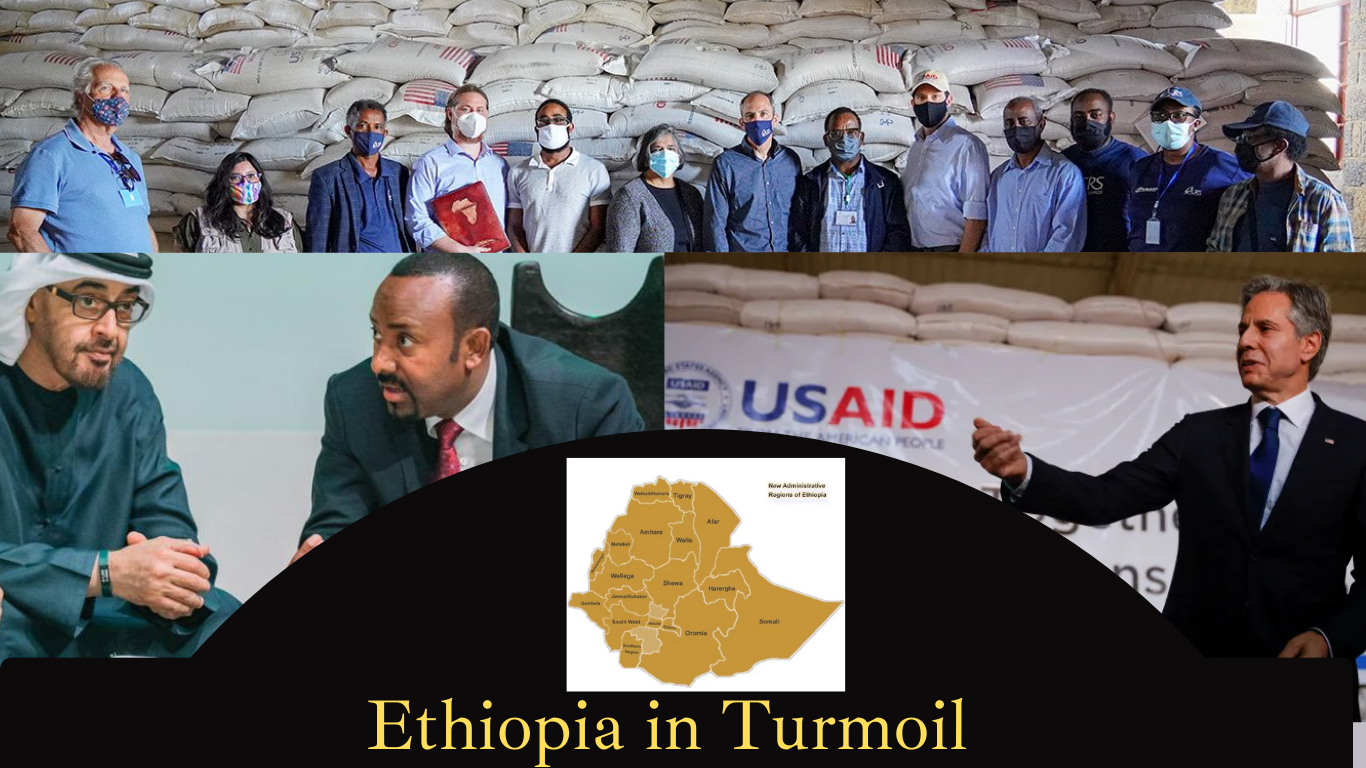Abiy Ahmed Amidst the Storm, Ethiopia's Fragility: A Tenuous Balance Amidst Tensions
Ethiopia's tumultuous crossroads under Abiy Ahmed's leadership: regional tensions, economic woes, and internal strife. A nation on the brink. #EthiopiaCrisis #AbiyAhmed

Amidst internal conflicts and instability, Ethiopia grapples with Prime Minister Abiy Ahmed's evolving relationships with Western nations, triggering concerns and geopolitical implications.
The recent US Congress House of Foreign Affairs Africa Subcommittee hearing on November 30, 2023, shed light on these concerns. Representative John James expressed apprehension about the Ethiopian government's priorities, stating, "The Ethiopian Government seems disinterested in peace, leaning on the West, particularly the United States, to solve its mounting financial difficulties." Rep. James also accused Abiy of aligning with Russia.
Prime Minister Abiy maintains close ties with Western nations, the United Arab Emirates, and his alignment with India. Middle East, Europe Economic Corridor (IMEC) interests in the region are evident.
Additionally, Ethiopia's collaboration with BRICS and its participation in the Belt and Road Initiative (BRI) showcase diverse engagements. However, this alignment with the West, particularly the US, to counter the BRI's influence may not resonate well with Eastern and BRICS nations, opposing their interests. The geopolitical implications of aligning with Russia and China might strain US-Ethiopia relations.
Impact on Geopolitical Relationships
Belt and Road Initiative (BRI) and China: Ethiopia's significant involvement in China's BRI through infrastructural investments has been pivotal for its development. Abiy's strengthened. Western ties could strain relations with China due to US skepticism regarding BRI influence in the region, potentially affecting Ethiopia's BRI participation.
BRICS Membership: Ethiopia's association with BRICS signifies alignment with emerging economies. However, Abiy's inclination towards the West might create discord within BRICS, possibly affecting Ethiopia's stance on global economic and political issues.
US-China Competition: Abiy's alignment with the West amidst China's expanding influence in the region could escalate US-China geopolitical competition, complicating Ethiopia's position between the two superpowers.
Ethiopia's Fragile Situation: Ethiopia's internal conflicts, notably the two-year conflict in Tigray and ongoing disputes in the Amhara region, have caused mass displacement and destabilization. These conflicts, though not fitting the classical definition of a single civil war, involve multiple factions vying for power across the nation.
Economic Challenges: Ethiopia faces dire economic challenges, including high inflation, soaring prices, and widespread youth unemployment. These issues significantly impact the nation's stability, particularly in urban areas, where youth unemployment rates are pronounced.
Potential Impact on Social Unrest: Rising inflation and high prices can lead to public discontent and dissatisfaction with the government's economic management. High youth unemployment rates might breed frustration and alienation, potentially fueling social unrest or protests.
Regional Tensions: Ethiopian Prime Minister Abiy Ahmed has intensified tensions by expressing a strong interest in acquiring a Red Sea port. Within Ethiopia, rumors linked to the Prosperity Party suggest the potential for a new conflict, which could mark Abiy Ahmed's fourth in five years. Speculations are rife regarding potential army mobilization. Abiy's emphasis on the critical necessity of a port, sea access, and naval presence for Ethiopia has provoked anger among many regional nations, notably Eritrea.
Despite signing a peace agreement, Abiy's betrayal of Eritrea has significantly damaged his reputation and cast doubts on his leadership credibility. This betrayal neglects Eritrea's past support to Ethiopia during a critical juncture when the TPLF threatened the country's unity.
Abiy Ahmed's strategies have strained relationships with Horn of African nations and with Kenya, where he made threats of conflict to secure sea access. His assertion of unity with the people of Afar poses a challenge to the sovereignty of nations housing Afar populations, potentially suggesting a veiled threat.
Nile Tensions: The construction of an extensive dam on the Blue Nile River has escalated tensions between Sudan and Egypt. Abiy Ahmed Ali's standing in the region remains unfavorable, especially regarding Sudan, Egypt, and Nile-related issues.
Internal TensionsThe release of influential TPLF leaders responsible for the deaths and displacement of millions further exacerbated this feeling: A significant portion of the Ethiopian populace distrusts and lacks respect for Abiy, viewing him as untrustworthy and deceptive. This sentiment originates from his reconciliation with the Tigray People's Liberation Front (TPLF), which alienated the Amhara ethnic group. The release of influential TPLF leaders responsible for the deaths and displacement of millions further exacerbated this feeling. Additionally, Abiy's military operation in April to disarm the Amhara militia, previously allied during the Tigray conflict, has exacerbated this lack of trust.
Conclusion: Ethiopia stands at a critical juncture, its stability teetering on a delicate balance. Under the leadership of Abiy Ahmed, the nation faces multifaceted challenges, encompassing internal conflicts, strained regional relations, and a populace deeply divided. The repercussions of Abiy's decisions, reconciliations, and perceived betrayals have left scars on Ethiopia's social fabric and its credibility on the global stage. Amidst heightened tensions, the fragility of Ethiopia's unity and stability looms large, demanding mature leadership, reconciliatory actions, and a concerted effort to navigate the complex web of internal and external challenges. The destiny of Ethiopia hinges on its ability to overcome these crises, forge unity among its diverse population, and chart a course toward peace, stability, and sustainable progress. However, at every stage of his leadership, Abiy Ahmed has acted in ways that contradict the hopes and dreams of the people, the region, and the continent of Africa.
Join the movement for informed perspectives and unbiased news! Support and subscribe to Nefasit Post at nefasitpost.com - empowering knowledge and fostering understanding. Donate and SubscribeNow.




Comments ()